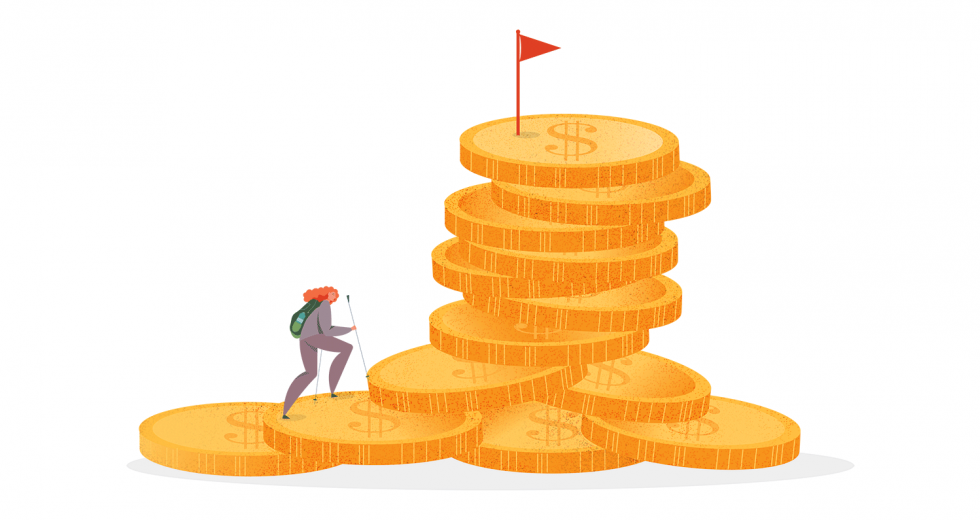Since the end of the Great Recession in 2009 and the long recovery period that followed, many economic experts have been anticipating the next downturn. While economists say predicting it is complicated, with trade tensions with China causing concern, other factors, such as the unemployment rate and economic output, have been reported to be healthy.
Economists often miss forecasting downturns, according to a 2018 report by the International Monetary Fund. The authors also found many recessions start before they have been identified and end before economists have enough data to know they’ve concluded.
The National Bureau of Economic Research says the average length of recessions from 1945 to 2009 lasted 11.1 months. Though these dips are a part of the ebb and flow of the economy, the financial impact on consumers can be long-lasting. To prepare for the next ebb, Comstock’s convened some of the Capital Region’s leading financial experts to share financial planning and investment tips.
(Photo courtesy of Scott Hanson)

Scott Hanson
Senior partner
Allworth Financial
What can individuals do to prepare financially before a recession hits?
The best way to avoid future pain of a recession is to check in on your portfolio annually and put it through a few paces. Advisers use software that allows clients to run a stress test and see what their portfolios might do if the market tumbled. In order to conduct your own stress test, you will want to know what portion of your portfolio is allocated to which investment vehicle and how this directly exposes you to risk.
When it comes to managing personal finances and investments, what are your best pieces of advice?
Know your risk tolerance. All investments contain risk.
The question is, how much risk are you willing to endure? Also,
stay diversified. Your savings should be inside a well-
diversified portfolio that helps protect you from swings in the
market. Finally, save 20 percent of your pay. If you’re not there
yet, incrementally increase your savings amount by 1 to 2 percent
each year.
(Photo courtesy of Nathan Torinus)

Nathan Torinus
Partner and financial adviser
Genovese Burford & Brothers
What can individuals do to prepare financially before a recession hits?
Look at your assets. One thing we do with our clients is look at what they expect they will need in the next 12 months, and then we can provide a recommendation, like moving parts of their assets into a more conservative savings vehicle. A lot can happen between where we are now versus six months in the market, so identify what your short-term needs are, and make sure that money is available in a lower-risk investment plan.
(Photo courtesy of Clay Evans)

Clay Evans
Branch manager
Stifel
What can individuals do to prepare financially before a recession hits?
The most important thing you can do is to have six months of savings reserved. If you lose your job, then you would have enough finances to cover your cost of living for six months.
What can an individual do to best manage their personal finances during uncertain economic times?
Diversification is key to mitigating risk in a bad market. You
can certainly lessen the (performance) by moving cash and moving
into more bonds. The older you are, you need to
pull your equity back. The value we add (as professionals) is
helping clients try to find that proper balance between growth
and income, risk and safety.
When it comes to managing personal finances and investments, what are your best pieces of advice?
It’s important not to carry high credit card debt with
high interest rates. Additionally, people need to build an
emergency fund, so if something happens, you don’t have to
immediately use a credit card. … Participating in your 401(k)
and having enough life insurance — particularly if you have life
dependents — is also important.
(Photo courtesy of Michael Rodegerdts)

Michael Rodegerdts
Financial adviser
Ameriprise Financial Services
What can individuals do to prepare financially before a recession hits?
Save more money. In our nation, the average 50-year-old has $8,000 saved for retirement, and that’s not enough. I use a simple yet effective equation to help my clients save: N + 1. N represents the current amount you’re saving, so if you’re currently saving $100, increase that by one.
What can an individual do to best manage their personal finances during uncertain economic times?
Contrary to popular belief, your wealth is created during the downturns. It’s not created in the up, it’s realized in the up. When the market goes down, people start to sell off investments or other things they don’t need to generate greater cash flow for expenses. So, if you have the proper amount saved, you can take advantage and invest or buy things like a house or a car at a discount. Remember, the good times are created by the bad — you just have to embrace the bad.



